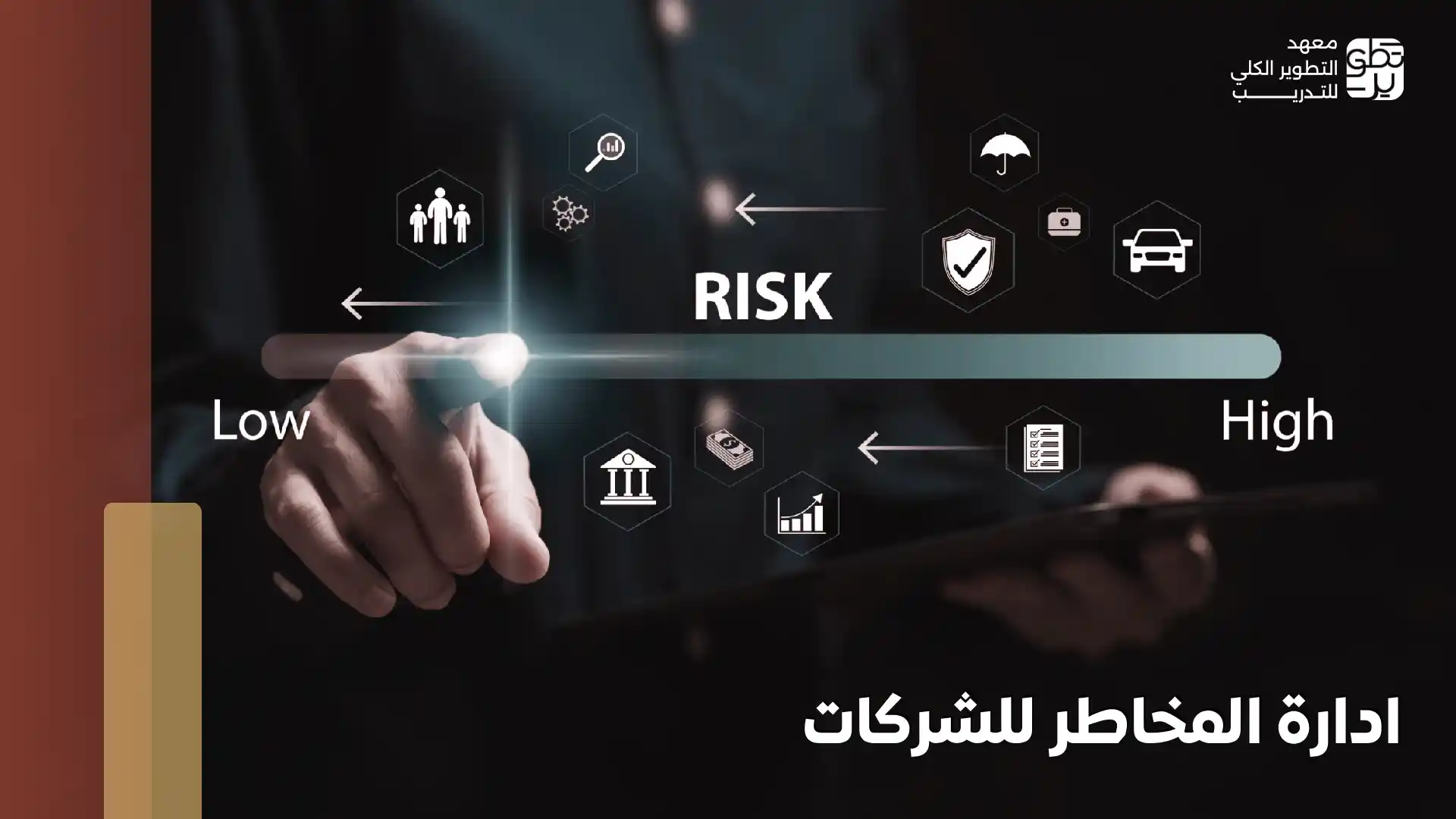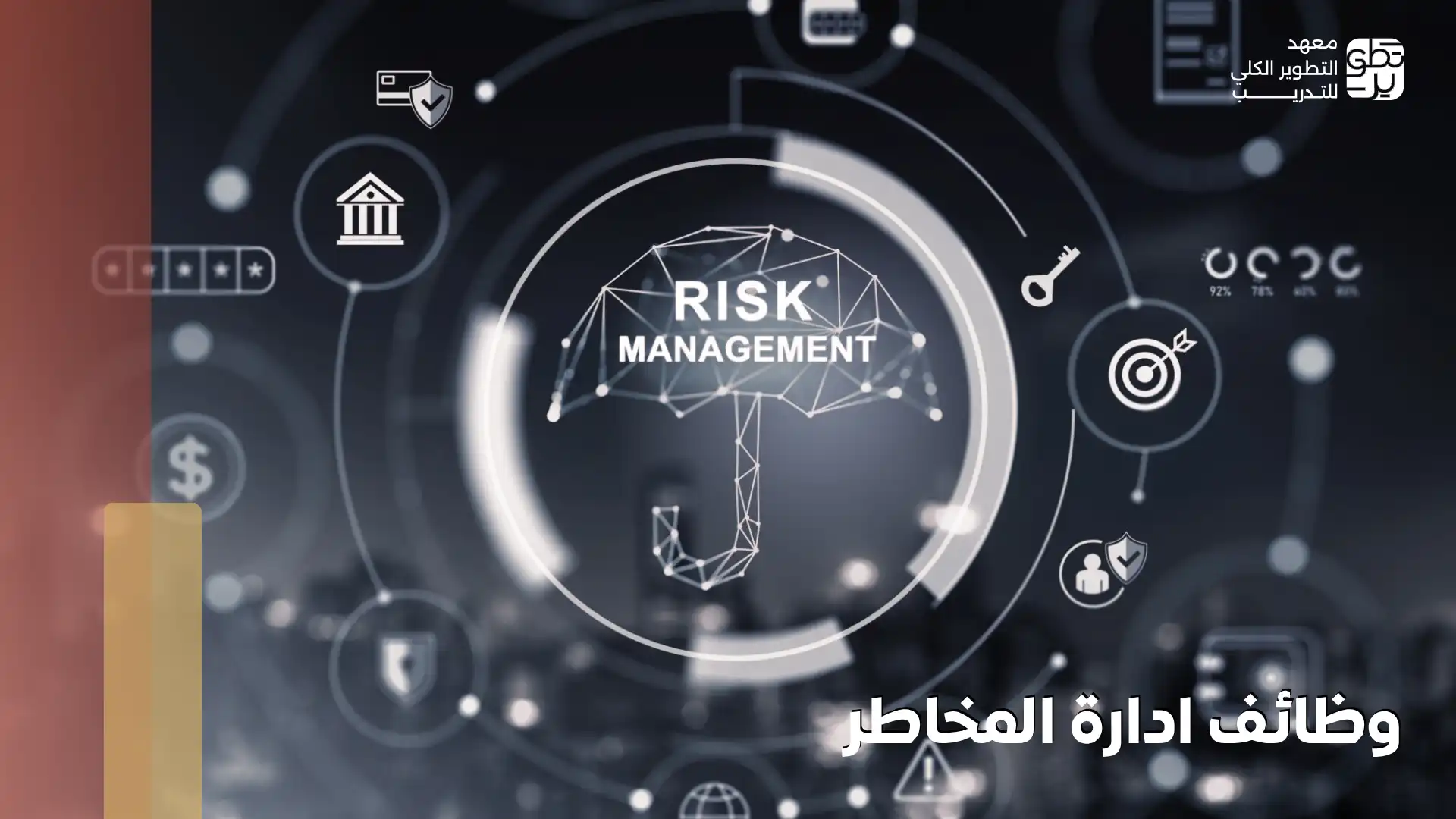
Risk management is one of the most critical elements for the success of projects and organizations in Saudi Arabia today. It is the tool that helps predict challenges before they occur and formulate appropriate solutions. If you're looking to develop your expertise and refine your skills in this field, enrolling in a risk management course in Riyadh provides a practical opportunity to learn about risk and crisis management concepts and modern tools.
In this article, we will cover several key aspects: what a risk management course entails, the importance of enrolling in this course, the course content and skills it focuses on, and the steps to choose the right course for your professional goals.
What is a Risk Management Course?
A risk management course aims to provide trainees with the knowledge and skills necessary to identify potential risks in the workplace, analyze them, and assess their impact. The course then teaches how to devise effective strategies to manage and minimize negative consequences.
This includes studying risk assessment methodologies, developing emergency plans, and applying monitoring and control tools that help organizations protect their resources and achieve their objectives with minimal losses. With the increasing need for specialized competencies in this field, the risk management course in Riyadh has become a program that professionals from various sectors are keen to attend.
Importance of Enrolling in a Risk Management Course in Riyadh
Enrolling in a risk management course in Riyadh offers you an opportunity to develop practical skills that are increasingly needed in the job market, especially with the expansion of businesses and the variety of challenges. The importance of this course can be summarized in several points:
- A comprehensive understanding of risk assessment principles and methods across different sectors.
- Gaining skills to develop effective response plans to minimize the impact of crises.
- Enhancing decision-making ability based on risk analysis.
- Increasing career advancement opportunities and standing out in the workplace.
- Supporting organizations in achieving greater stability and reducing potential losses.
In short, enrolling in a risk management course in Riyadh not only develops individual skills but also reflects positively on the success and stability of organizations, making it a strategic choice for anyone aiming for professional advancement.
Target Audience for the Risk Management Course in Riyadh
The risk management course in Riyadh is an excellent opportunity to train a wide range of professionals across different sectors. The course targets the following groups:
- Project managers looking to reduce risks and increase project success rates.
- Employees in financial and accounting departments who need to manage financial risks effectively.
- Professionals in the insurance and banking sectors dealing with sensitive risk-related decisions.
- Quality and compliance officers within companies and organizations.
- Entrepreneurs and startup owners aiming to prevent crises and deal with future challenges.
- Consultants and analysts who wish to expand their expertise in this field.
This course provides each of these groups with a solid foundation to understand the nature of risks and apply practical strategies for managing them.
Risk Management and Crisis Management Program Content and Skills Focused On
The risk management course in Riyadh provides you with a deeper understanding of how to handle risks in project environments and organizations. The course content is designed to cover both theoretical and practical aspects in a comprehensive manner, helping you build practical, applicable experience. The main topics of the course and the skills gained are summarized as follows:
- Learning the fundamentals of risk management, including planning strategies and stakeholder interactions.
- Learning how to identify risks using practical tools and methods that help track threats and opportunities.
- Conducting qualitative risk analysis to assess priorities and influencing factors accurately.
- Developing risk mitigation plans and clarifying responsibilities and implementation mechanisms.
- Mastering risk monitoring and control techniques through performance reviews and information sharing.
- Training on the use of Primavera software to analyze risks practically.
Through these topics, the goal is not only academic learning but also gaining internationally recognized skills that will allow you to advance in professional risk management exams, such as the Risk Management Professional (PMI-RMP) certification.
Professional Risk Management Certifications
As we discuss the risk management course in Riyadh, it's worth mentioning several certifications that provide the necessary expertise to handle risks across various sectors. Some of the prominent professional certifications in risk management include:
- CISR (Certified Insurance Service Representative): A specialized certification for professionals in the insurance sector, focusing on managing insurance risks.
- CRM (Certified Risk Manager): One of the most well-known and prestigious certifications in the risk management field.
- FRM (Financial Risk Manager): An internationally recognized certification in financial risk management, considered a leading certification for professionals in banking and financial markets.
- CFA (Chartered Financial Analyst): A certification offered to specialists in financial market analysis and managing investment-related risks.
- PRM (Professional Risk Manager): Ideal for professionals dealing with risks in financial institutions.
- PMI-RMP (Project Management Institute – Risk Management Professional): This certification is for professionals who focus on risk management in projects.
Each of these certifications serves as a practical tool to expand knowledge and develop skills related to risk management across different industries.
Job Opportunities After Completing the Risk Management Course
Enrolling in a risk management course in Riyadh opens up various career opportunities in sectors like banking, insurance companies, government institutions, and large corporations. After completing the course, trainees can work in several positions, including:
- Risk Management Specialist: Responsible for identifying potential risks, analyzing them, and suggesting practical solutions to mitigate their impact.
- Risk Management Manager: Leads a team and develops integrated strategies for crisis and risk management.
- Risk Consultant: Provides consultancy services to companies to help them develop effective risk management plans.
- Financial Risk Analyst: Works on evaluating risks related to investments and financial operations.
- Compliance and Governance Officer: Ensures that the organization follows regulations and standards to avoid legal and regulatory risks.
- Business Continuity Manager: Develops emergency plans to ensure the continuity of the organization in the event of major crises.
These job roles reflect the importance of risk management courses in preparing organizations to deal with any emergency or unexpected challenge.
Steps to Choose a Risk Management Course That Fits Your Professional Goals
Choosing the right course is a critical step in advancing your career, especially if you aim to excel in project management. When considering enrolling in a risk management course in Riyadh, it's important to follow clear steps that help you achieve the maximum benefit:
- Clearly define your professional goals, such as career advancement, gaining international certification, or acquiring specialized skills.
- Review the course content to ensure it aligns with your needs for practical skills like planning, qualitative analysis, and risk mitigation.
- Ensure that the course offers hands-on training with modern tools such as Primavera for risk analysis.
- Check the qualifications and experience of the instructors to ensure high-quality training.
- Choose a training provider with strong credentials and certificates that will enhance your prospects in the job market.
By following these steps, you can select a training program that directly serves your professional goals.
Enrolling in a risk management course in Riyadh is not just an addition to your resume but an investment in your professional capabilities, opening new doors of opportunities in the job market. Through understanding the concepts, practical training, and selecting the right program, you can build a stronger and more flexible career path in project management. If you are thinking about advancing your expertise in this field.
Frequently Asked Questions
Can I enroll in the course without prior experience in project management?
It’s preferable to have a background in project management, but beginners can also benefit from the course if they have a genuine desire to enter the field.
What are the job opportunities after completing the risk management course in Riyadh?
The trainee’s opportunities for promotion increase, with roles such as Project Manager, Project Management Office Manager, or Risk Management Specialist in major companies.


















